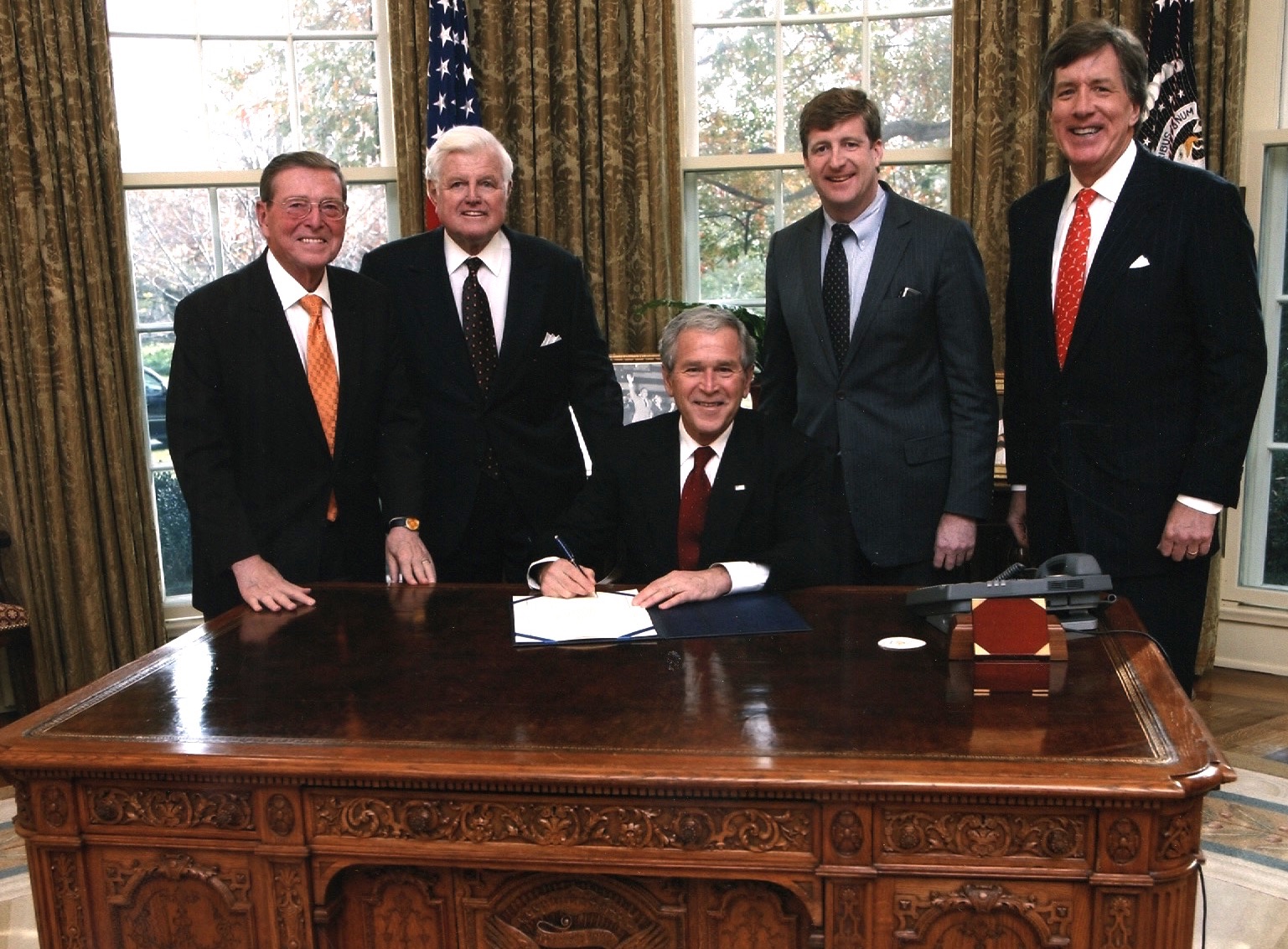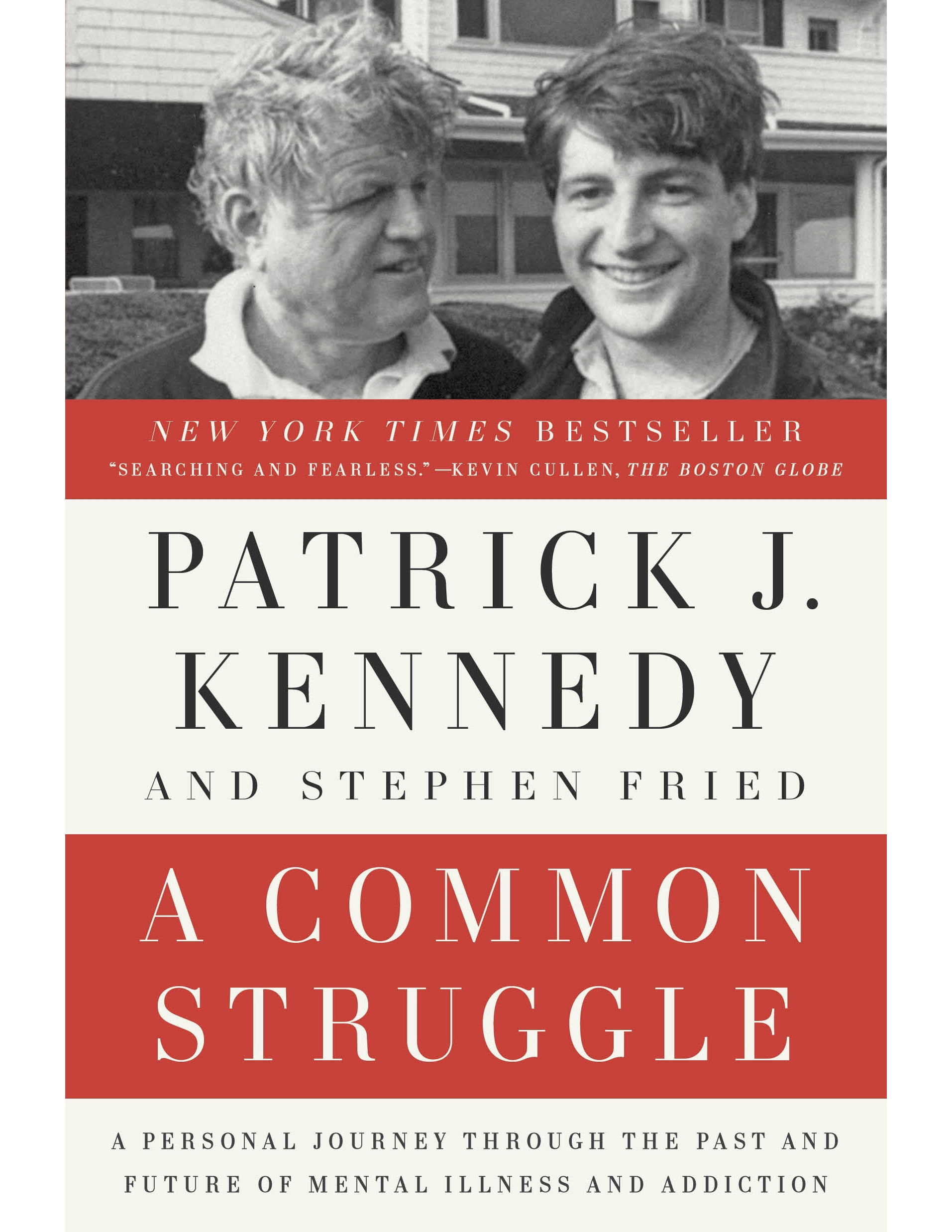Former U.S. Rep. Patrick J. Kennedy, candidate for Office of National Drug Control Policy Director
Cover Letter (See Recommendation Letters & Background Items Below)
November 19, 2020
To Whom It May Concern on the Biden-Harris Transition Team:
In 1982, then-Senator Joe Biden publicly pushed for a comprehensive, coordinated effort to fight addiction in the United States, coining the phrase “drug czar.” His idea for a centralized office, opposed at the time by President Reagan, who labeled it “another layer of bureaucracy,” eventually came to fruition in 1988 as the Office of National Drug Control Policy (ONDCP).
ONDCP has had varying levels of influence and success since then. Though at times a cabinet-level position (e.g. Clinton’s second term, George W. Bush) and at times not, the Director of ONDCP is vested with unique statutory responsibilities. The Director certifies the drug portions of about two dozen departmental and agency budgets, leads the government’s anti-drug strategy, and acts as a bully pulpit on all areas of drug addiction. A key responsibility, too, is to liaise and work with Congress to fund drug-related programming and secure bipartisan support for the nation’s drug control strategy. Hence, the Director should be someone who has earned respect across party lines and among a wide swath of Americans.
Having spent my life working with people from every political persuasion and every walk of life- I understand the unique needs of families, mental health and addiction treatment providers, law enforcement, people in recovery, and others. Through my memoir, A Common Struggle, and the media and public speaking tour that followed, I connected with millions of Americans who have been either directly or indirectly impacted by the brain disease of addiction. As a person living in long term recovery, I have shared my story time and time again – but more importantly I have had the great benefit of hearing the stories of countless others who have personally suffered with addiction or love someone with addiction. Hearing a parent relay the trial and pain of losing a child to addiction, hearing someone in recovery retell the tumultuous road to recovery – these are the stories that continue to fuel and empower my advocacy.
I enjoy excellent rapport among the NIH directors with whom this position would partner. For example, Dr. Nora Volkow, the Director of the National Institute on Drug Abuse has been a dear friend and mentor for many years; I have worked with Dr. George Koob, Director of the National Institute on Alcohol Abuse and Alcoholism, over the years on the No Fetal Alcohol Syndrome initiative; and Dr. Joshua Gordon, Director of the National Institute of Mental Health and I currently co-chair the National Mental Health & Suicide Prevention Response Effort to COVID-19. In addition, I am well positioned to elevate the topics of addiction prevention and treatment having ongoing working relationships with former Surgeons General Dr. David Satcher and Dr. Vivek Murthy.
During the Trump years, ONDCP has severely suffered. In 2017, the Washington Post ran an expose on the office, noting that it had become a landing pad for numerous inexperienced political staffers. In 2017, I was invited to sit on the President’s Commission on Combating Drug Addiction and the Opioid Crisis. In an effort to work across party lines and advance sorely needed addiction policy, I accepted, and diligently assembled a comprehensive set of recommendations for the Trump administration-most of which were incorporated into the Commission’s final report. Unfortunately, the administration turned a blind eye on the Commission and did nothing to advance drug policy.
It wasn’t until 2019 that President Trump selected his drug czar: a lawyer with no drug expertise. During a time when overdoses were on a steady climb, ONDCP was reduced in size, scope, and influence – and there were only minimal efforts from within the West Wing. With an annual death toll over 110,000 due to addiction, overdose, and suicide, ONDCP needs a significant refresh and focused approach.
I share President elect Biden’s position in support of marijuana decriminalization. Like him I support expanded research and expungement as priorities while also recognizing the dangers of today’s higher potency consumption options and a rapidly evolving for-profit industry. Regarding addiction treatment, care must be covered by private health insurers, and mental health must be a key component of addiction treatment.
Through many philanthropic and enterprise relationships, I have spent the last decade navigating policy solutions and special programming to tackle the crisis of addiction. I would welcome the opportunity to serve this Administration, the American people, and my fellows in recovery, as Director of the Office of National Drug Control Policy.
Respectfully,
Patrick J. Kennedy
Recommendation Letters
Arthur C. Evans, Jr., PhD
Chief Executive Officer, American Psychological Association
David Satcher, MD, PhD
Founding Director & Senior Advisor, Satcher Health Leadership Institute
Morehouse School of Medicine
16th Surgeon General of the United States
Hon. Gordon H. Smith
President and CEO, National Association of Broadcasters
Michael P. Botticelli
Executive Director, Grayken Center for Addiction Medicine at Boston Medical Center
Former Director, Office of National Drug Control Policy
Thomas R. Insel, MD
Co-Founder and Chairman, Humanest
Former NIMH Director (2002 – 2015)
Linda Rosenberg, MSW
Director of External Affairs, Columbia University Medical Center
Robert Gebbia
Chief Executive Officer, American Foundation for Suicide Prevention
Paul Gionfriddo
President and CEO, Mental Health America
Ron Manderscheid, PhD
President and CEO, National Association for Rural Mental Health / National Association for Rural Mental Health
Susan Gurley
Executive Director, Anxiety and Depression Association of America
Henry M. Kaiser, PsyD, MBA
Co-Director, the Neurofeedback Advocacy Project
Pamela Greenberg, MPP
President and CEO, Association for Behavioral Health and Wellness
Gary Mendell
Founder and CEO, Shatterproof
Howard Mosby
Board Chair & Treasurer, HEAL Collaborative
David Gastfriend
Co-founder & Chief Medical Officer, DynamiCare Health
Brandon Staglin
President, One Mind
Chuck Ingoglia
President & CEO, National Council for Behavioral Health
Benedict Lessing, Jr., MSW
President/CEO, Community Care Alliance
Anne Woodbury
Executive Director, Advocates for Opioid Recovery
William E. Morgan, DC
President, Parker University
Amit Paley
CEO & Executive Director, The Trevor Project

Patrick J. Kennedy was lead author of the Mental Health Parity and Addiction Equity Act (Federal Parity Law).
The bill was signed into law by George W. Bush in 2008.
Relevant Background Items
Appendix to Patrick J. Kennedy’s New York Times Bestseller, “A Common Struggle: A Personal Journey Through the Past and Future of Mental Illness and Addiction”
Details a bold plan for the future of mental health care in America.
Patrick’s personal recommendations to the President’s Commission on Combating Drug Addiction and the Opioid Crisis—he served as Commissioner in 2017.
ONDCP released a report last year providing an update on the Commission’s final set of recommendations. Although the report did not map the update onto the recommendations, an analysis by The Kennedy Forum revealed no updates on nearly one-third of the recommendations. Many other updates were vague and hard to evaluate—most focused on drug trafficking and reducing opioid prescribing. Key changes still needed from Commission recommendations: remove patient caps for physicians prescribing buprenorphine; give DOL the power to issue fines for parity violations; require the use of a standard tool to assess insurers compliance with the Federal Parity Act; and reduce prior authorization and step therapy barriers to MAT in insurance coverage.
Action plan of Mental Health & Suicide Prevention National Response to COVID-19
Patrick currently serves as private sector co-chair alongside Dr. Joshua Gordon of National Institute of Mental Health (NIMH) who serves as public sector co-chair.
Advocates for Opioid Recovery
Patrick serves as an advisor to the bipartisan Advocates for Opioid Recovery organization alongside former Speaker of the House Newt Gingrich and Van Jones. In 2016, they spoke with Sally Satel at the American Enterprise Institute about bipartisan policy solutions for recovery in 2016. Learn more and view the recording here.
Navigating the New Frontier of Mental health and Addiction: A Guide for the 115th Congress
This guide outlined how Members could address mental health and addiction—regardless of party or committee—to save lives, improve health outcomes, break down barriers to care, and facilitate better mental health literacy in schools, communities, and the workforce.
To learn more about Patrick J. Kennedy’s fight for mental health equity, click here.


